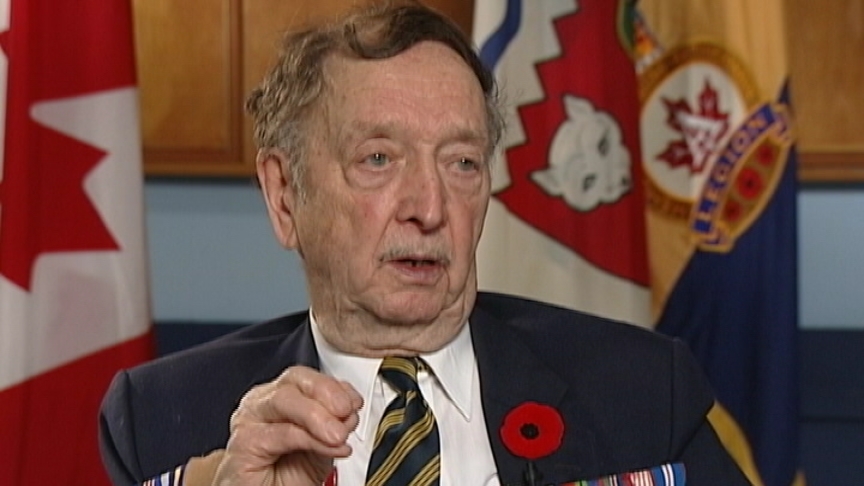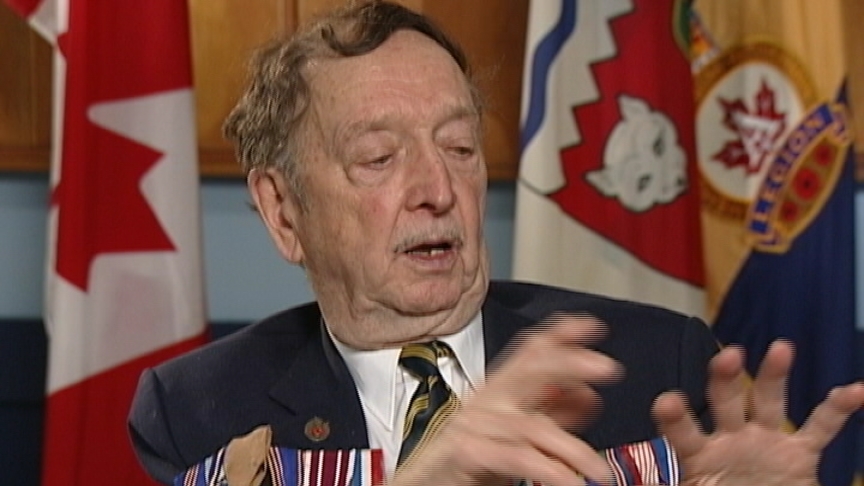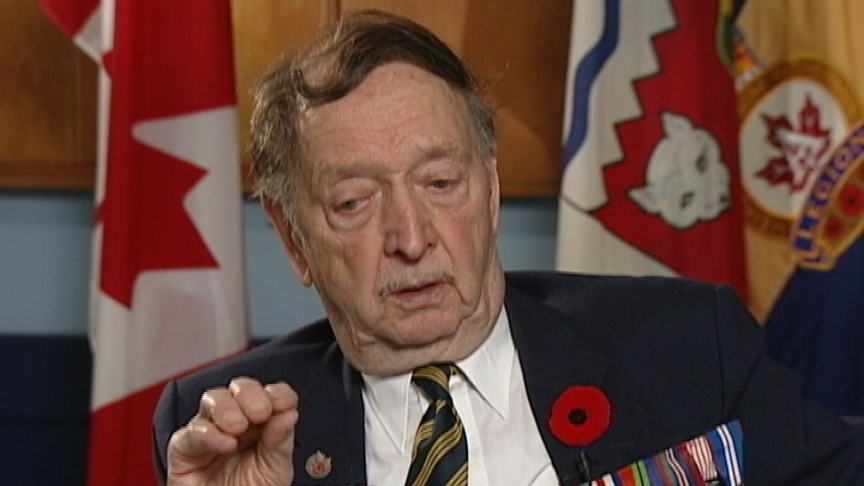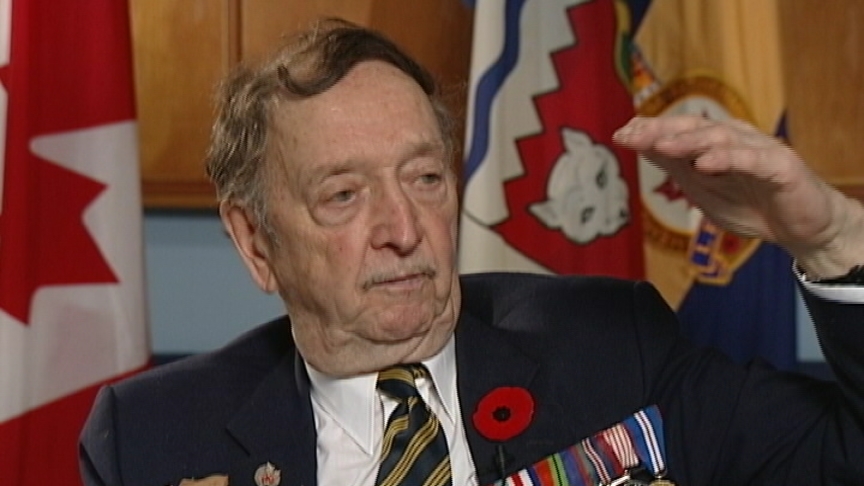“MIA”
Heroes Remember
Transcript
Description
Mr. Miller speaks about how they reacted to news of people that went missing in action.
Douglas “Dusty” Miller
Mr. Douglas Miller was born near Blenheim, Ontario on March 12, 1919. There were four boys in the family all of whom served in the Second World War. He attended a technical school to learn aircraft technology prior to enlisting as he wanted to serve in the air force. After enlisting he trained in St. Thomas for about a year and was then posted overseas in Britain. He travelled by ship from Halifax to Britain and was posted to an airfield near Newcastle with a Canadian squadron of Bristol Beaufighters. The squadron was assigned to night fighting in an effort to ward off German bombers coming over to bomb Britain. Mr. Miller worked with the ground crew of this squadron and also served as an observer on flights from time to time. Before the end of the war he achieved the rank of flight sergeant.
Meta Data
- Medium:
- Video
- Owner:
- Veterans Affairs Canada
- Duration:
- 02:52
- Person Interviewed:
- Douglas “Dusty” Miller
- War, Conflict or Mission:
- Second World War
- Branch:
- Air Force
- Units/Ship:
- 406th
- Rank:
- Flight Sergeant
- Occupation:
- Aircraft Rigger
Related Videos
- Date modified:






